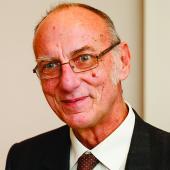Beyond packaging
Acceleration by Stefano Lavorini
Ours is a difficult world. A world in which even our fears have changed, and changed for the worse. This the sense of the talk given by professor Paolo Legrenzi which closed the proceedings of the fourth edition of the Economic Packaging Conference (Venice 30th and 31st May) organized by the Istituto Italiano Imballaggio in cooperation with Conai, the Italian national packaging consortium.
Let’s take a look at our history. «Mankind, in the long course of its evolution, has striven to reduce the uncertainties as regards nature, that by now only rarely constitute a threat». Frightened by what we cannot predict or foresee, starting from 1600s, we introduced the measure of risk. «If there is an event that repeats itself with a certain frequency, one can construct a historic series on the basis of which the uncertainty is turned into risk». Two centuries ago, though, we discovered the uncertainly built my man which has today materialised in the performance of the financial markets, recent history, that offers very weak regularity and based on but a few cases.
«The problem is that, fighting nature, we feared the dangers but we learned by experience. Fear is a very strong adaptive sentiment. Today the fear of financial events does not lead to prevention, but marks a moment of opportunity for some («the wagers on the financial market are ten times more than the capitalisation of all Stock Exchanges») while for others it dispenses ruin and poverty.
Something has gone wrong as ineluctably emerged from the Venetian Conference: interesting and well-structured the talks, qualified the participation of the world of associations and entrepreneurs, generous and painstaking the hospitality, evocative the location and estimable the cultural digression (the Urs Fischer exhibition at Palazzo Grassi).
No objections to be made. Indeed it was a good opportunity for going into and exchanging opinions on economic and financial issues, which allowed us to contextualize packaging in a scope that extended well beyond a purely technical and sectorial one.
It is in fact clear that the world of doing is worth ever less and the problems related to the same – and that grip us so intensively in our daily toil, during debates and in the magazine – are gradually loosing weight and “reality” in a context not only devoid of any control, but that even defies understanding. For us mortals it is hard going to continue to attribute sense to what we do…
Homo faber fortunae suae (“Man shapes his own fate”)… The problem is that one finds oneself “running after history, without making history” (Barbera Spinelli), really meaning that the game is rigged: it is difficult to understand how the productive system of the democratic countries can for long compete with centrally powered regimes like China. This was explained well by Giuseppina Parini who, among other things, highlighted how the growth of China in the last 10 years is due mainly to investments and only partially to exports or the increase in domestic consumption.
And indeed the recession we are going through, as Barbara Giani stated, «presents a series of aggravating circumstances: it is bronchial pneumonia and not merely a cold».
What can we expect? To stay on the practical side of things this is what Alessandra Lanza indicated. «To sum things up during 2012 high tensions will remain regarding profits and self-financing. The demand for fluid assets will tend to increase, also depending upon growth of international markets; the difficulties due to delay in payments will continue; what is more there won’t be any moves in support of the capacity to invest and the conditions for access to credit will remain extremely difficult. It is probable that this situation will also last for most of 2013».
How (and in what state) will we get there? The figures speak for themselves. Plinio Iascone updated the picture for production and the use of the various packaging material, with detailed reference to the growth prospects for the period 2012 – 2013.
He was echoed by Gianpaolo Bruno, who presented a full and interesting analysis on the foreign trade of packaging, area in which Italy has a credit balance of 2 billions and is holding its own in terms of the normalised balance.
But perhaps the strongest answer is an article by Concita De Gregoria of Republica entitled “I industrialist, preach an extinct religion”. An interview with Vainer Marchesini head of Wam, a company of 2,200 people destroyed by the Emilia earthquake:«I didn’t do anything special, it was easy in the Sixties, if you had an idea you put it into practise and off you went, then work, work, work, and that was all. Today things are no longer like that, because we have ceased to see where our actual assets lie: our assets lie in things, in the earth and in the sea, in the work that converts the same, in manufacture, in the ingeniousness that produces objects. Not in finance, no. That is a deceit…The future lies in the aforementioned. Doing things, producing, inventing solutions to problems. And never, ever giving up. Milk will always come from the stalls, believe you me. The only solution I know is work. There is no other solution».
In the words of the desecrating Italian comic Paolo Rossi «These are times were… lucidity stands as the utmost of perversions».
| ECONOMIC PACKAGING CONFERENCE (VENICE 30TH AND 31ST MAY) |
|
Opening of proceedings Macro picture of the world economy Growth prospects for the period 2012 – 2013 of the entire packaging sector The raw materials market The recycled materials market Packaging in terms of foreign trade The driving role played by China Financial markets and mid-term prospects The Italian labour reform and its impact on the market Company credit Moderator |

















